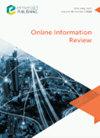学生对MBA课程中两类播客的态度和学习效果
IF 3.1
3区 管理学
Q2 COMPUTER SCIENCE, INFORMATION SYSTEMS
引用次数: 0
摘要
目的本研究的目的是考察MBA学生对通过播客学习的看法。作者的目的是揭示学生对在研究生学术课程中使用播客作为关键学习工具的态度,检查这种学习模式下的学习效果,检查学生对播客学习灵活性的看法,并检查播客作为期中作业与播客作为讲座替代品是否有不同的参考。本文考察了工商管理研究生对将播客作为电子学习工具的学习态度和有效性。本文还探讨了这种异步学习的灵活性。两种不同教学目的的播客在研究中进行了检查,一种作为团队中期作业,另一种作为录制的讲座。本研究的主要结果提供了重要的证据,表明以前在互联网上收听播客的经验对使用该技术时的学习有效性、学生态度和学习满意度有显著影响。事实上,本研究建立了以技术为导向并有听播客经验的学生在课程中学得更多,对播客技术作为学习工具持积极态度,学习效率高,并且对异步学习过程的灵活性感到满意。研究结果表明,在期中作业和课程教学中,随着学生越来越频繁地收听播客,并获得了在互联网上收听播客的经验,学生对使用该技术进行学习表达了更积极的看法,学生的学习效率更高,学生对使用这种异步技术e-Learning工具的灵活性更满意。此外,研究结果清楚地表明,在课程中收听播客课程与期中作业和课堂上的学习效果呈正相关。研究的局限性/意义本研究有一些局限性。首先,研究结果受到样本相对较小的限制,研究对象是攻读MBA课程的研究生,这门课程来自科技创业领域。此外,在本研究中,学生可以部分自由地从创业领域的某个知名节目中选择学生期中作业的播客,而不能自由地从互联网上的任何网站上选择播客。虽然这个过程引导学生使用高质量播客节目的播客,但这个过程也在一定程度上减少了学生的选择。学术机构必须提供适当的技术基础设施,以便讲师为学生开发、创建和录制高质量的播客,此外还必须培训讲师通过播客进行教学,并将其作为电子学习先进工具的一个组成部分。此外,机构必须在经济上激励和教育上鼓励讲师使用预先准备好的播客来教授至少部分课程内容。社会意义对于那些希望使用播客作为学习资源的讲师,作者的第一个建议是让自己熟悉可用的技术和资源,向学生介绍播客的基础知识,并让学生意识到播客的好处。第二,本研究强烈建议在学生进入本科高级课程之前,在基础课程中尽早将播客融入学术教学课程。这样,高级课程的学生可以更好地利用这项技术。原创性/价值据作者所知,这是第一次在学术课程中结合两种类型的播客,用于两种互补的教学目的:第一种是开放的、可用的在线播客,作为期中作业的一部分;第二种是录制音频课程,作为课程讲座的完全替代。此外,本研究加深了学生以往的技术经验对学习效果的重要性,以及积极的意见和较高的学习满意度。本文章由计算机程序翻译,如有差异,请以英文原文为准。
Students' attitude and learning effectivenes for two types of podcasts in MBA course
PurposeThe purpose of this research is to inspect the perceptions of MBA students regarding learning through podcasts. The author's goals are to reveal the students' attitudes toward the use of podcasts as a key learning tool in a graduate academic course, to examine the learning efficacy in this mode of learning, to inspect students' opinions regarding flexibility in learning with podcasts and to examine whether there is a different reference to podcasts as a mid-term assignment vs podcasts as a substitute for lectures.Design/methodology/approachThis paper examines the learning attitudes and effectiveness of postgraduate students in business administration toward combining podcasts as an e-Learning tool. This paper also explores the flexibility of this kind of asynchronous learning. Two types of podcasts for two different pedagogical purposes were examined in the study, one as a team mid-term assignment and second as recorded lectures. The main results of this study provide significant evidence that previous experience in listening to podcasts on the Internet has a significant impact on learning effectiveness, student attitudes and learning satisfaction while using this technology. In fact, this study establishes that students that are technologically oriented and have prior experience listening to podcasts learn more in the course, have positive attitudes toward podcast technology as a learning tool, have high learning effectiveness and are satisfied with the flexibility of the asynchronous learning process.FindingsThe findings state that both in the mid-term assignment and in the course lessons as students listened to podcasts more frequently and gained experience listening to podcasts on the Internet, the students expressed more positive views toward learning using this technology, the students' learning effectiveness was higher and the students were more satisfied with the flexibility made possible by using this asynchronous technology tool of e-Learning. Moreover, the results of the study clearly indicate a positive correlation between listening to the podcast lessons in the course and the effectiveness of learning both in the mid-term assignment and in classes.Research limitations/implicationsThis study has some limitations. First, the findings are limited by the relatively small sample, with graduate students in an MBA program, in a course from the field of technological entrepreneurship. Furthermore, in this study, the students had partial freedom to choose the podcast for the students' mid-term assignment from a specific well-known program in the field of entrepreneurship and were not free to choose podcasts from any site available on the Internet. Although this process guided the students to use podcasts from a quality podcast program, the process also reduced the students' choice to some extent.Practical implicationsAcademic institutions must provide the appropriate technological infrastructure for the development, creation and recording of quality podcasts by lecturers for students, in addition to training lecturers to teach through podcasts as an integral part of e-Learning advanced tools. Furthermore, institutions must financially incentivize and educationally encourage lecturers to teach at least some of the content in the course using pre-prepared podcasts.Social implicationsThe author's first suggestion to lecturers that wish to use podcasts as learning resources is to familiarize themselves with the technology and resources available to introduce students to the basics of podcasting and to make the students aware of the podcast's benefits. Second, the study highly recommends to integrate podcasts into the teaching curriculum in academia as early as possible in the basic courses, before the students move on to advanced courses in undergraduate studies. In this way, students in advanced courses can make better use of this technology.Originality/valueAs far as the author knows, this is the first study that combined two types of podcasts used for two complementary pedagogical purposes in an academic course: the first, open and available online podcasts as part of a mid-term assignment and the second type of podcasts that are recorded audio lessons as a complete replacement for course lectures. Additionally, the study sharpens the understanding that students' previous experience with technology is of great importance to learning effectiveness, as well as positive opinions and high learning satisfaction.
求助全文
通过发布文献求助,成功后即可免费获取论文全文。
去求助
来源期刊

Online Information Review
工程技术-计算机:信息系统
CiteScore
6.90
自引率
16.10%
发文量
67
审稿时长
6 months
期刊介绍:
The journal provides a multi-disciplinary forum for scholars from a range of fields, including information studies/iSchools, data studies, internet studies, media and communication studies and information systems.
Publishes research on the social, political and ethical aspects of emergent digital information practices and platforms, and welcomes submissions that draw upon critical and socio-technical perspectives in order to address these developments.
Welcomes empirical, conceptual and methodological contributions on any topics relevant to the broad field of digital information and communication, however we are particularly interested in receiving submissions that address emerging issues around the below topics.
Coverage includes (but is not limited to):
•Online communities, social networking and social media, including online political communication; crowdsourcing; positive computing and wellbeing.
•The social drivers and implications of emerging data practices, including open data; big data; data journeys and flows; and research data management.
•Digital transformations including organisations’ use of information technologies (e.g. Internet of Things and digitisation of user experience) to improve economic and social welfare, health and wellbeing, and protect the environment.
•Developments in digital scholarship and the production and use of scholarly content.
•Online and digital research methods, including their ethical aspects.
 求助内容:
求助内容: 应助结果提醒方式:
应助结果提醒方式:


